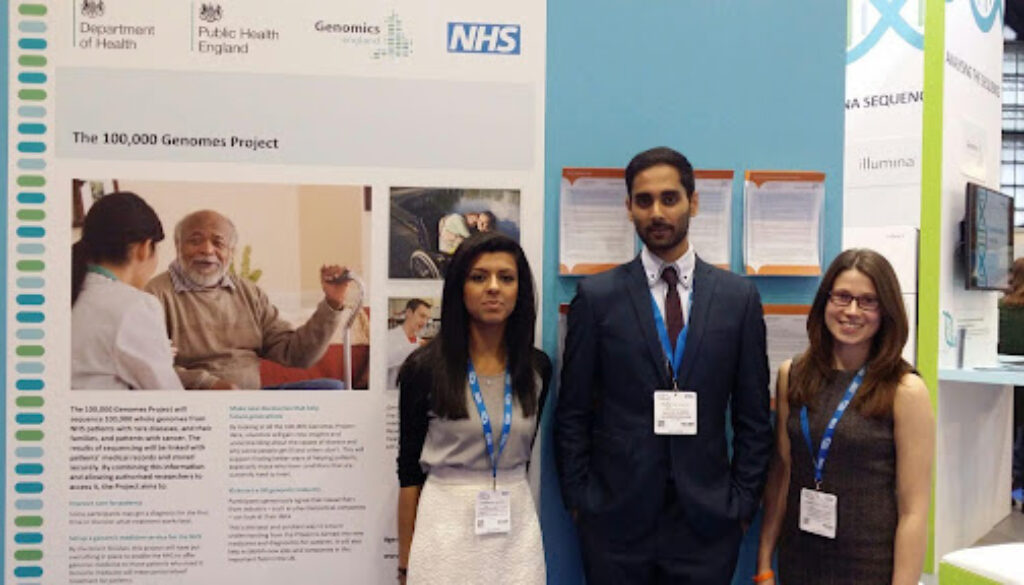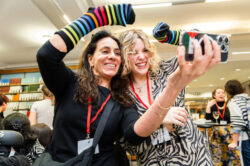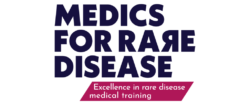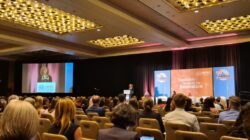From Genetics Undergraduate to Paediatric Registrar
by Dr Alexandra Downes, Paediatric Registrar
My Rare Disease journey began in the second year of my Human Genetics degree at University College London. I still remember to this day the lecture from a Consultant in Metabolic Medicine from Great Ormond Street Hospital for Children, who spoke about targeted therapy based on genetics for children with rare metabolic disorders. It was this lecture that set me on the path to apply to medical school, where I studied on the Graduate Entry Programme at Bart’s and The London School of Medicine and Dentistry two years behind Lucy Lavery – now better known to everybody as Dr Lucy McKay, CEO of Medics 4 Rare Diseases.
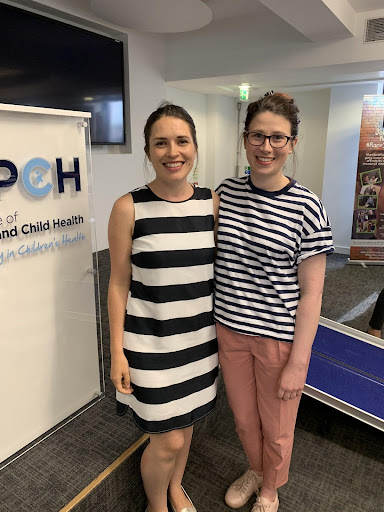
Lucy and I met in Fresher’s week and we hit it off instantly. With my interest in genetics, I was a natural recruit to Bart’s and The London Rare Diseases Society, which was still only in its second year.
Throughout my time at medical school I was an active member of the society. From helping to organise the early ‘Unusual Suspects’ symposia, to taking over the role of President in my third year, to setting up a student group of data collectors for The 100000 Genomes Project for Rare Diseases.
I also worked with other medical schools during the early days of ‘Students for Rare Diseases’, the precursor to Medics 4 Rare Diseases (M4RD).
My original ambition as I began my career at medical school was to train in Paediatrics and eventually sub-specialise in Clinical Genetics. Paediatrics is a logical training pathway for geneticists, as the majority of genetic diseases will present in childhood. I spent time at medical school exploring clinical genetics as a specialty, including an elective placement in the department at Great Ormond Street Hospital where I was able to shadow Consultants and attend clinics.
Over the course of my training, it became clear to me that clinical genetics was not going to be the right career path for me. I had grown to thrive on the acuity of ward-based medicine and was not prepared to give this up for a predominantly clinic-based specialty. I had, however, fostered a passion for Paediatrics and on completion of my Foundation Programme, I went straight into Paediatric training in South London.
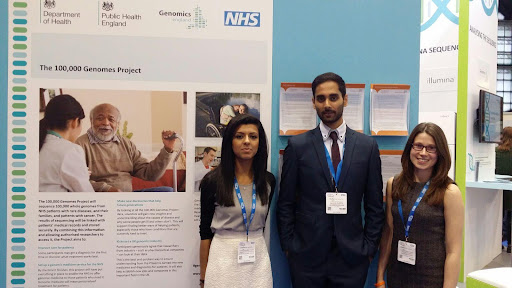
During my first year working as a Paediatric doctor I began to encounter rare diseases in my day-to-day practice on a more regular basis. This ranged from newborn babies on the Special Care Baby Unit, to new presentations in the Emergency Department, to children with established diagnoses on the Children’s Ward or in Outpatient Clinics.
As part of my training, I attended a London School of Paediatrics study day at the Royal Society of Medicine (RSM) on Genetics and Metabolic Medicine. This reignited my enthusiasm for clinical genetics and I was particularly moved by a talk from Patient Advocate Karen Harrison, from ‘Alex, The Leukodystrophy Charity’ who gave an inspiring talk about her sons’ journeys with X-linked adrenoleukodystrophy (X-ALD). This talk would prove to be a pivotal moment in my own Rare Disease journey.
I reconnected with Lucy towards the end of my first year of Paediatrics training at a ‘Rare Diseases Tea Party’ event hosted by the British Paediatric Surveillance Unit. It was at this event that I met Karen Harrison again and was able to thank her for her talk at the RSM. It had helped me immeasurably when during that very same week on call a young boy was admitted to the Children’s Ward with a deterioration in his X-ALD. This encounter formed the basis for Karen and I’s talk at M4RD’s ‘The Unusual Suspects’ symposium in 2020 and will be the focus of my next blog post.
I am now into my fifth year of Paediatric training and am keeping Rare Diseases at the forefront of my interests. Earlier this year, I was appointed to the London School of Paediatrics (LSP) Trainees Committee Education Subgroup, giving me responsibility for the regional online teaching for all London Paediatric trainees and future RSM training days. This seemed like the perfect opportunity to use this platform to spread the message of M4RD to one of its key target audiences. We have delivered two talks so far, both featuring a patient representative thus reinforcing MR4Ds key message that patients should be at the centre of rare disease education. I will share more details and the feedback for these talks in a future post.
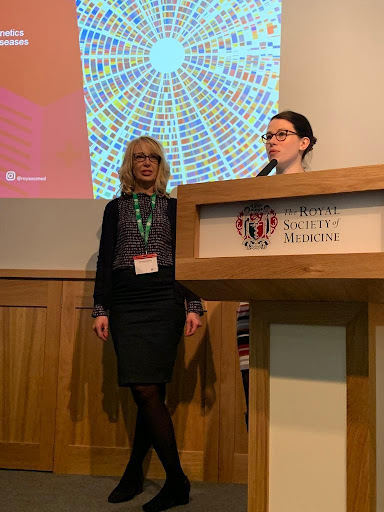
After setting up the collaboration with the LSP, I was honoured to be asked by Melissa and Lucy to represent M4RD as Clinical Ambassador. My vision for the year ahead is to optimise education for Paediatric trainees at both a local level in my current job in Community Paediatrics and at a regional level in my role with LSP. Looking to the future, I am applying for neonatal training and plan to explore the diagnostic odyssey for parents on the neonatal unit whose babies are affected by rare and genetic diseases. I embrace the challenge and responsibility associated with being a Clinical Ambassador and hope to affect meaningful change in the Paediatric community in this role.

